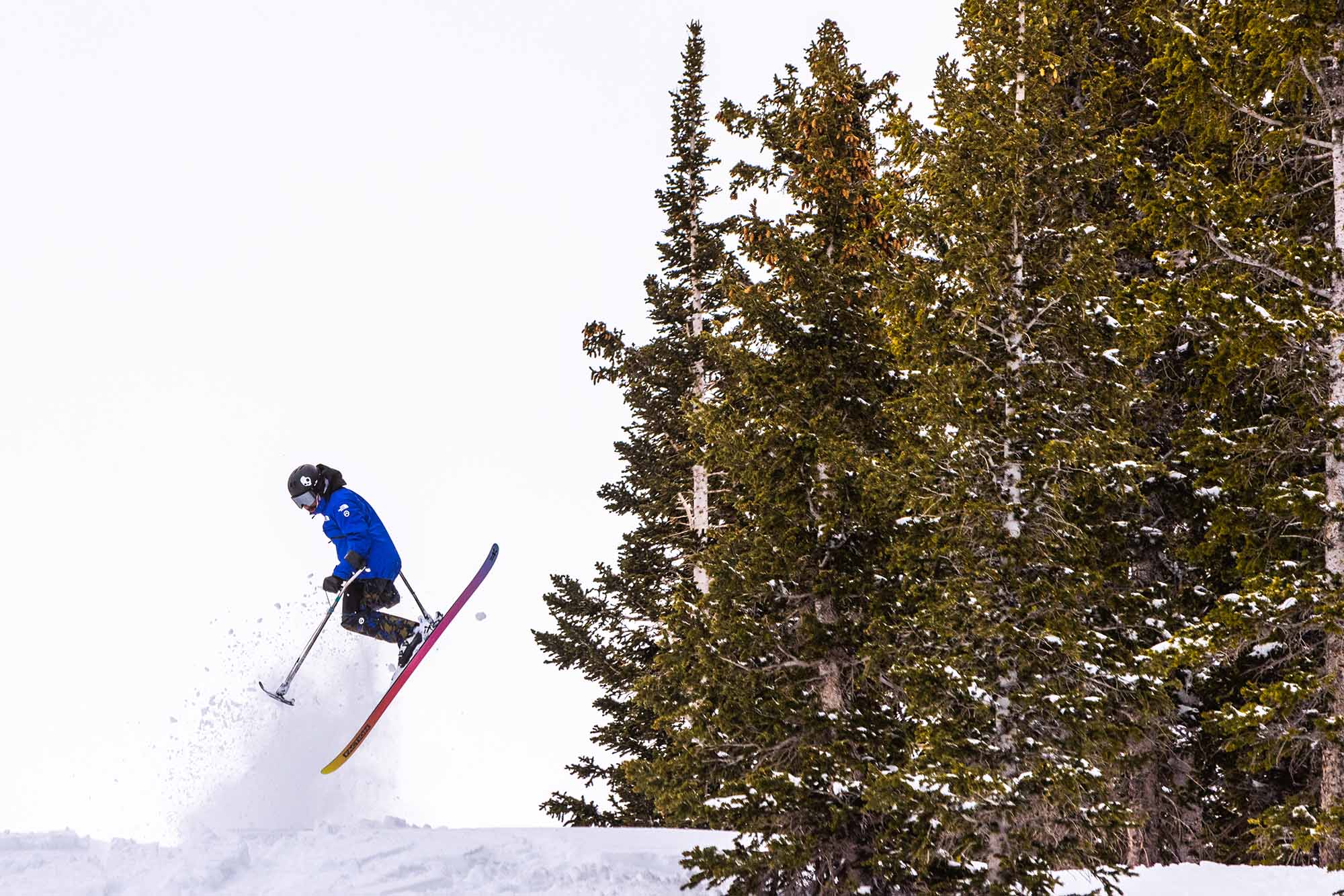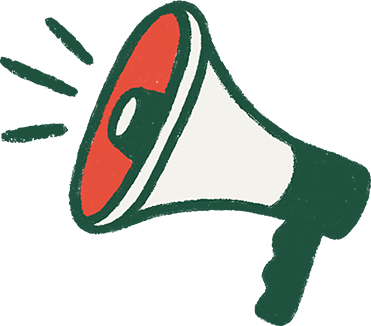We all have reasons for getting outside: Some of us seek the strength and adaptability that nature can model for us, while others long to feel reconnected to what it means to be a human among the ecosystems all around us. Maybe we want to create a sense of community and share a part of our culture with friends and family. Perhaps we just want to observe, letting a forest or mountain view wash over us and instill a sense of awe.
While each one of us has a unique motivation for going outside, we can find common ground in our stories. That’s why this year, we’re honoring the many ways REI Co-op members, partners and employees experience nature by asking, “Why do you get outside?”
In the essays that follow, an entrepreneur explains how a life-changing backpacking trip turned into a new opportunity, and a professional athlete reflects on the ways his relationship to nature heals and challenges him. A community organizer shares insight into how coming together outdoors can help unite us on a mission to preserve both our own and our neighbors’ culture, and an REI production designer describes the deeper significance that “Leave No Trace” has for her.
Read on for their stories—and we won’t be surprised if you see a little bit of yourself in them too.
Jump Ahead
· Discovering a more resilient version of myself by Yvonne Leow
· A deeper understanding of being human by Vasu Sojitra
· Co-creating community spaces where Asian Americans can be outdoors by Grace Fan
· Leaving nature untouched by Mire Morii
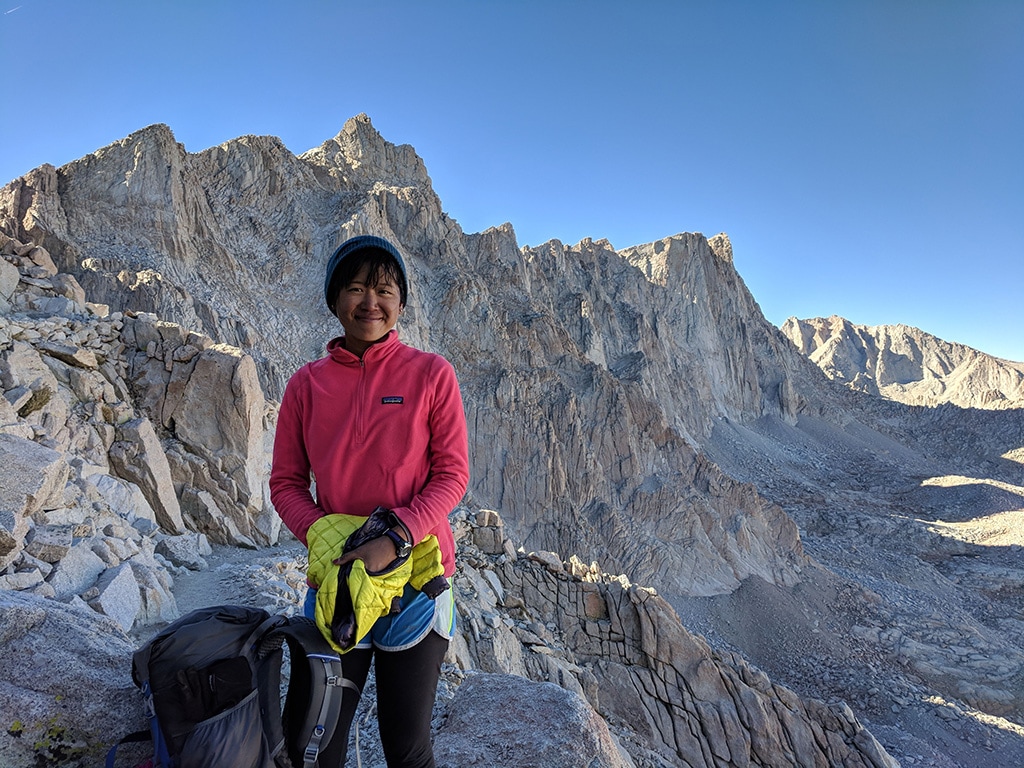
Discovering a more resilient version of myself
Whenever I’m in nature, I find myself drawn to mountains and oceans. Mountains are the epitome of resilience. They erode and become chiseled over time, but they persist through some of the harshest conditions in the world. They’re stunningly beautiful in their stoicism.
Oceans are cyclical. Waves rhythmically crash against the beach, yet the water is ever-evolving. It adapts to every crevice and creature it encounters. Witnessing these two elements has a way of making me feel insignificant and infinite at the same time. They remind me of what it means to be alive.
My name is Yvonne Leow, and I am the CEO of Bewilder. We’re an experiential retailer for outdoorsy families. Our mission is to inspire more families to spend time outside, and we partner with brands to create interactive and educational experiences that defy traditional ideas of what is “outdoorsy.” We want to stoke people’s imagination by giving them an opportunity to use gear, learn about nature, and connect with the outdoor community before ever committing to a weekend trip. We’re a stepping stone for families who, like my own, never saw nature as a place for them.
I grew up in Washington State, but my family and I rarely camped. It’s partly because my mom’s family were refugees who fled from Cambodia’s Killing Fields and the atrocities conducted by the Khmer Rouge regime. Their horrific experiences in Cambodia left an early impression that being outside was not only dirty and uncomfortable, but dangerous and deadly. They never had a chance to experience nature as awe-inspiring or relaxing, so even though we lived in the lush suburbs of the Pacific Northwest, I didn’t either.
It wasn’t until my mid-20s that I went on my first backpacking trip in the Eastern Sierra and fell in love with nature. As someone who traveled the world, I was surprised to find spectacular scenery not too far from my home, like the John Muir Trail and Mount Whitney. I gradually became better at trekking and mountaineering, and even added downhill and backcountry skiing to my repertoire at the age of 30. Trust me when I say it’s never too late to learn.
Now instead of planning a trip to a foreign country, I organize backpacking trips in California. My relationship to nature has profoundly changed the way I think about how to live a life. I’m much more informed about how we preserve and recreate in our public lands. I also wouldn’t have started Bewilder had I not gone on that first fateful backpacking trip.
I love what we’re building at Bewilder, but being a solo founder requires an immense amount of diligence, determination and resilience. It’s similar to mountaineering. The climb feels slow and tedious. You’ll likely fail to reach the summit due to unpredictable weather, injury, illness or worse, but the point is that you must try. Why? Because the sunsets and sunrises you see during your trek will be some of the best you’ll ever witness in your life, and the fellow climbers you meet along your journey will be your personal heroes for years to come.
I feel lucky to be able to grow Bewilder. Our scrappy team and community of Bewilder Beasts inspire me everyday. I know there are all kinds of reasons for why I shouldn’t be pushing myself up a mountain, but in the pursuit of an irrational, seemingly impossible goal I’ve learned more about myself and who I want to be: I’m a dreamer at heart and I will always belong outside.
— Yvonne Leow, CEO and founder of Bewilder. Embark 2022 cohort. REI Member since 2012
About Path Ahead Ventures
Yvonne Leow was part of the REI Co-op Path Ahead Ventures 2022 Embark cohort. Embark, a collaboration with Founded Outdoors, is a virtual, three-month program to offer professional, community and financial support to help Black, Indigenous, Latina/o/x and Asian American and Pacific Islander (AAPI) founders turn their early-stage ideas into viable businesses. Learn more at REI.com/path-ahead.
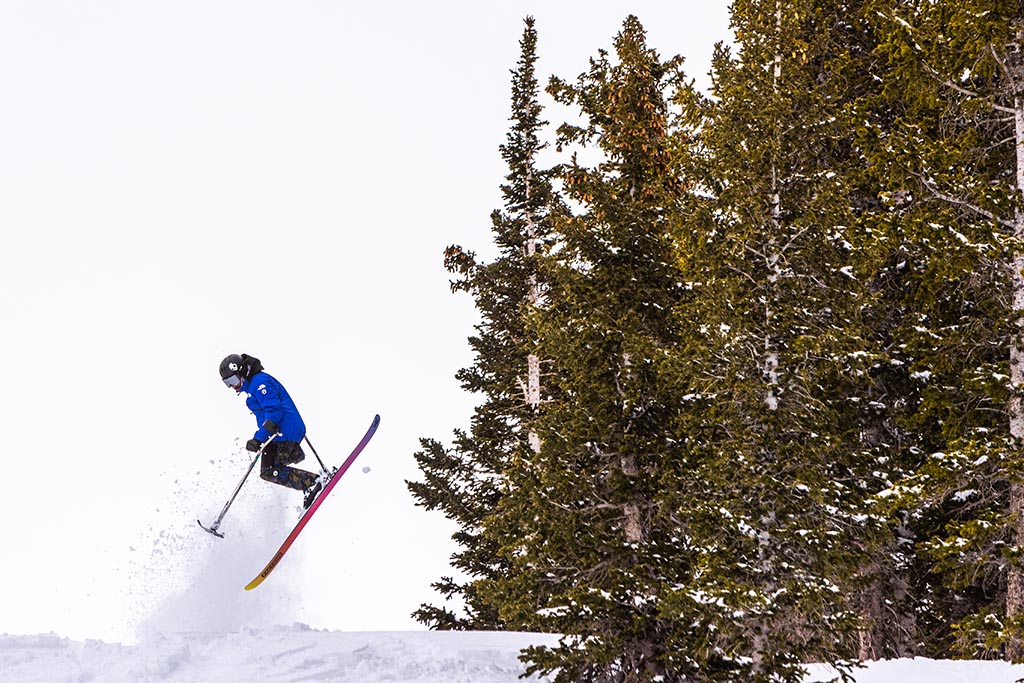
A deeper understanding of being human
What’s important to you about being in nature?
The importance for me to be in nature is a deeper understanding of being human, and this interdependent connection to everything around me. I believe that humans and nature coexisted and, over the past couple hundred years, this idea of dominion over nature has drifted our society away [from nature] and caused a rift. So, for me, reclaiming this understanding and deeper connection has helped me feel more human through all the intricacies.
How has being outside changed your life?
Being outside has shifted my life. It has provided me with more confidence in myself alongside understanding the “why” of my existence within the bigger picture. Especially being put into multiple different socially constructed boxes—from disabled and a person of color—spending time outside helps me dissolve any fixed monoliths toward focusing on my humanity.
— Vasu Sojitra, professional athlete and disability access strategist. Learn more about him at vasusojitra.com.
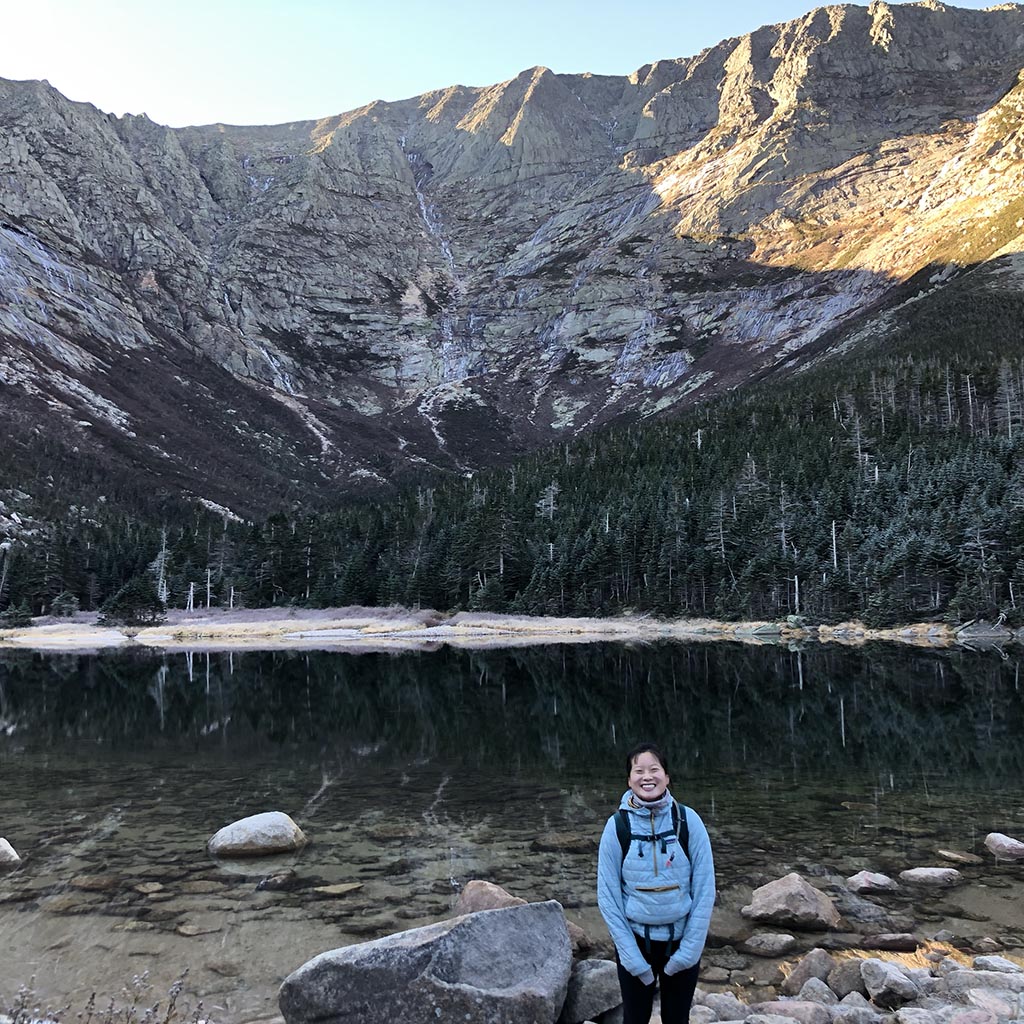
Co-creating community spaces where Asian Americans can be outdoors
In times when I have needed to return to myself—particularly in the last few years when there has been continual state violence against and violence across/within marginalized communities—I’ve found there are few things a moment among the trees cannot soothe, even if just temporarily. The sun setting over Clark Park in Philadelphia when I’m enjoying a drink with friends, the sound of silence in the mountains as snow falls, the intimate solitude I have with rocks up high with nothing but my climbing gear and a belayer below, the feeling of being reunited with and submerged in the sea after a long time away, harvesting bitter melon in the community garden—these times of joy have been a salve, particularly in light of the onslaught of depressing headlines that have plagued our communities again and again.
Breathing with the trees and walking by the sea help me feel grounded in myself and in the world, which is why co-creating community spaces where Asian Americans can be outdoors together—building relationships, sharing stories and exchanging our cultural foods outside—feels like important healing work for our community. It’s been particularly essential given the political climate of these last few years and the long history of our struggles in this country.
I live and work as a community organizer in Philadelphia, one of few U.S. cities with a remaining historical Chinatowns. We are currently fighting for the area’s existence in the face of a billionaire-backed plan to build an NBA arena for the 76ers right by the Chinatown gate. Philadelphia Chinatown is where our ancestors first gathered for economic, cultural, religious and social survival when Chinese immigrants were unable to live and make money anywhere else due to anti-Chinese hostility and exclusion laws. Our Chinatown started in 1870 when a Chinese immigrant named Lee Fong built a laundromat because no one else wanted to do the dirty and arduous labor of cleaning clothes. Today, Chinatown is where we, our elders and our young people gather—also for economic, cultural, religious and social survival and health. The legacy is the same: Chinatown fills the need for a space to convene and comfortably speak your mother tongue.
And, like the history of outdoor spaces in the United States, it seems that the needs and priorities of communities of color are never as important as those in power (e.g., white people, wealthy people, non-disabled people) when it comes to fighting for the existence of Chinatown as well.
If I dwell on the thought of Chinatown being destroyed by sports-arena-inspired gentrification, it is hard not to feel downtrodden. I worry about the small food businesses that keep our bellies connected to home closing because rent has gotten too high, our elders becoming displaced, street congestion due to game traffic. When hopelessness creeps in, I turn to the things that can ground me and fill me back up with hope: the joy of seeing trees in blossom, the rhythm of my feet hitting the pavement on a long run by the Schuylkill River, laughing with loved ones on a spring day at the South East Asian Market in FDR Park.
When I’m asked, “Why do you get outside?” my response is immediately coupled with, “How do we get outside?” For all the reasons I get outside, I want my community to get outside too—and, as many people know, the outdoors are better enjoyed in good company.
As a community organizer, I have seen intimately how the COVID-19 pandemic, years of anti-Asian violence and the resurgence of anti-Asian rhetoric has eroded both my spirit and that of those around me. While we are deeply in need of drastic systemic change to actually get at the root of these issues, I have found healing in both being outside alone and co-creating community spaces where Asian Americans can be outdoors together, either formally through groups like Outdoor Asian, or informally just through my nexus of friends.
These healing and hopeful memories have ranged from being silly around a picnic table cooking our foods together; sharing stories about our ancestors and mother countries while a pot of tea is heating on the campfire; and singing at the top of our lungs to a mix of Adele, our favorite Chinese tunes and Ke$ha in the car on the way to a crag. Having sweet moments with land can spark healing for wounds that we carry. Moments of joy that nature inspires can also move something deep within us.
So, how do we build healing relationships with land that is not ours—to recognize the history of colonialism and white supremacy in our community and others? How do we build generative and beautiful relationships with land that we have been exploited on, displaced on, sought asylum and refuge on, been harassed on for looking like the vector of a fatal virus? These questions are ones I sit with and want to pose to everyone, especially those who identify as Asian American. I can’t help but ask these questions as I’m turning toward the woods as my sanctuary.
— Grace Fan, communications manager for Outdoor Asian National, an organization whose vision is to create a diverse and inclusive community of Asian and Pacific Islanders in the outdoors. Fan is the co-lead for Outdoor Asian Pennsylvania. She is also the youth programs coordinator for Asian Americans United. REI Member since 2019
About the REI Cooperative Action Fund
Outdoor Asian is a grantee partner of the REI Cooperative Action Fund, a 501(c)(3) public charity founded in 2020 by REI Co-op to create a more equitable outdoors. The Fund aims to bring together millions of REI members, thousands of REI employees, and hundreds of nonprofit partners and community leaders to support organizations that are improving the well-being of all people through time outside. With ongoing support from REI Co-op, 100% of donations from the general public to the Fund go to the people and organizations leading this work in communities across the country.
Learn more, make a donation or nominate a grantee at reifund.org.
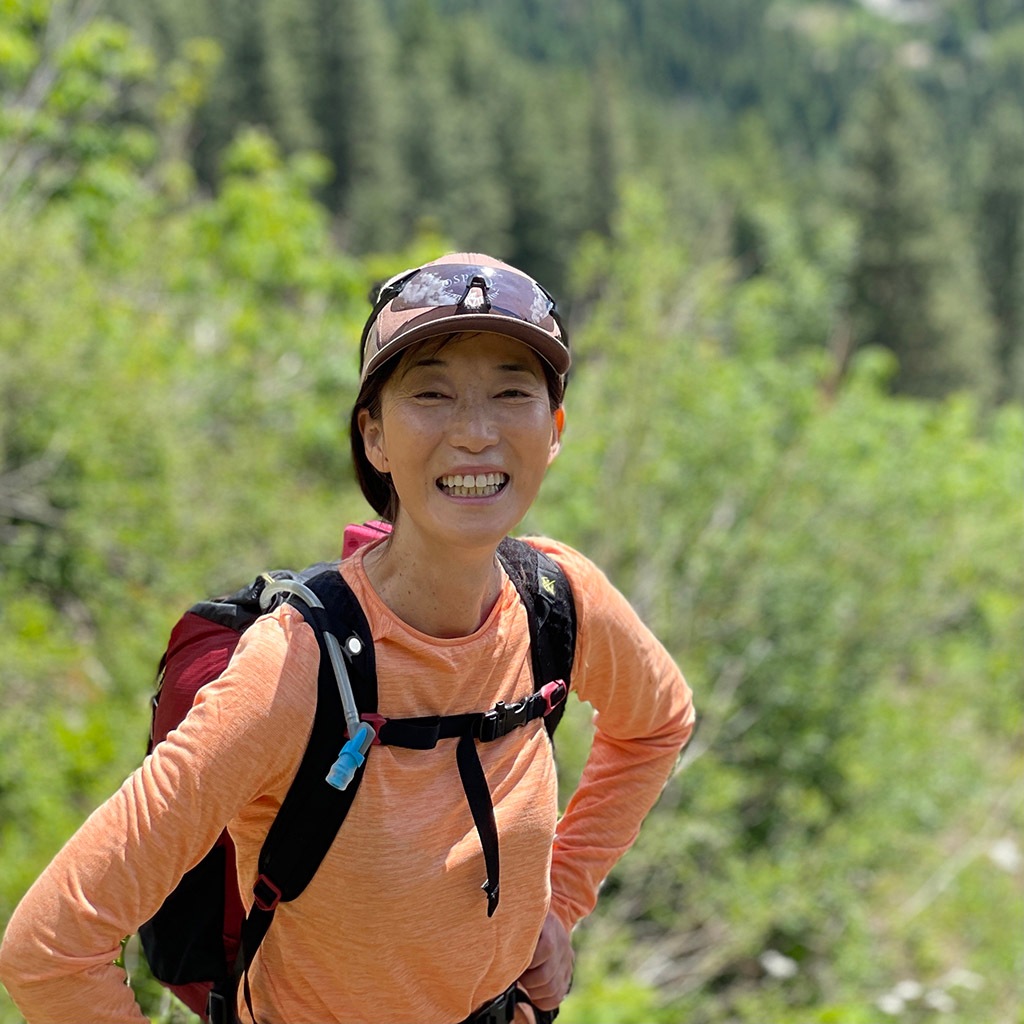
Leaving nature untouched
Originally, I am from Japan. The beauty of the Pacific Northwest and the North Cascades—just absolutely I could not live anywhere else. It wasn’t that someone forced me to do it, or any life events occurred: I am the one who decided to live here. It’s almost like somebody beyond me discovered that I should live here. It’s just so nice here. Something indescribable. Some sort of a-ha moment, like, this is just nothing compared to Tokyo, but why do I like it so much?
Leaving nature untouched is my principal belief. I’m thinking back to those ancestors or Japanese immigrants, they look for the American dream to just live here and find the beauty of nature in this country. There is so much meaning to them. Yet they kept this heritage and their principle—even now, this generation. It’s like this tool that maybe it’s time to toss because it’s not sharp anymore. But I remember my grandparents: Tools are like their passion. They just sharpen them and give them to the next generation. Tools are a really admirable thing in Japan. If you hand off the tools to someone you know, there is a story in that tool. It’s like you’re giving your kind to that person, “Please take care of it and please use it.”
In my culture, there are many ways of saying a haiku or poem about how you relate to nature. Be in the nature and observe and not take anything from it. And it really is not that I learned the Leave No Trace or any of those teachings, it’s actually in me already.
I used to bring the children with ICO—it’s formerly called Inner City Outings, taking those children outside that who actually don’t have a chance otherwise. Now it’s called Inspiring Connection Outdoors. We bring them to nature and engage them. Some kids don’t know the word “trailhead,” or say, “What is camp?” It’s pretty fun. We of course teach Leave No Trace principles, which is really hard! To not feed birds or squirrels. Leave only as few footprints as possible, take only memories and smiles. No banana peels. It’s just leave and observe. It was very meaningful to show them what surrounds them.
Again, back to leaving nature as-is, that principle lives in me. I recently decided to move to Whidbey Island, north of Seattle. We are fully engaged in nature; nature is not somewhere that I need to drive in and go. It’s outside my window—which is pretty amazing. I’m looking forward to finding myself more: what is it like to me, to just enjoy, wake up the five senses. The sound of ice axe sticking into the snow, the sound as it gets into the ice. Or zipping up the tent and the wind blows in on you. Those moments drive me to connect to nature. And nature’s beauties are exceptional here in this Pacific Northwest. And you can live within them.
Where I am living, some people enjoy the outdoors harvesting, taking from nature. But in my culture, it’s probably a little different. Like farmers for instance: They often rotate the occasion of the harvesting, and some try not to fertilize in the chemical way. Or they talk to the plants, pruning the trees how they want it to go, not force them. Here’s a story: We just had a pruner come; he handles Japanese maples really beautifully. There was a tree that was blocking our view to Mount Baker, and I so wanted to just get rid of it. But he reminded me, “Mire-san, imagine this frame of beauty that has the tree surrounding [it] and the mountain [in] the center of. The scenery is more beautiful that it has some obstacle in it.” And he said to use my bird-eyes and engage and enjoy it the way it is. And I’m kind of changed now. This is a reminder of who I am. My mother and father were always saying that to me.
So, on this theme, leaving nature as is. That’s really the Japanese principle or philosophy: Engage and place yourself within nature, not harm or articulate or try to change.
— Mire Morii, senior production designer for REI Co-op. REI member since 2003
Why Do You Get Outside?
If you’d like to share your motivation behind getting outdoors and exploring the world around you, email us at stories@rei.com to contribute to an upcoming edition of “Why I Get Outside.”
